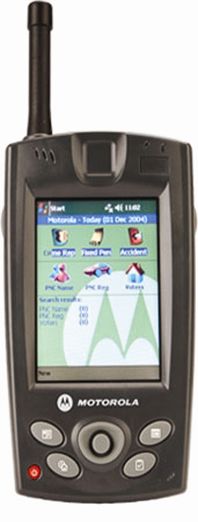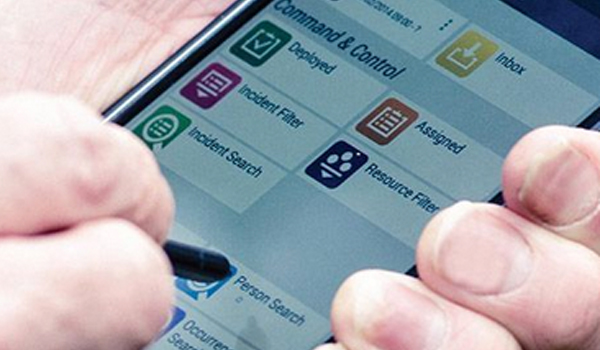Technology on the move
Frontline officers may have given a mixed reception to the effectiveness of hand-held electronic notbooks, but the mobile technology revolution rolls on. By September, the Home Office intends to ensure that 10,000 such devices are available to police nationwide. Strathclyde Police and Durham Constabulary are the latest forces to introduce PDAs.
Frontline officers may have given a mixed reception to the effectiveness of hand-held electronic notbooks, but the mobile technology revolution rolls on. By September, the Home Office intends to ensure that 10,000 such devices are available to police nationwide. Strathclyde Police and Durham Constabulary are the latest forces to introduce PDAs.
Senior police officers have hailed electronic notepads a great success for slashing red tape but the rank-and-file have passed a damning verdict on them.
Hundreds of personal digital assistants (PDAs) were introduced last year at a cost of more than £600,000.
Replacing notepads and pens, the PDAs are meant to allow witness statements and other information from crime scenes to be downloaded straight on to a computer and stored.
But a survey by the Scottish Police Federation of officers using PDAs in Lothian and Borders found that 64 per cent thought the devices were less efficient, with only nine per cent saying they saved time.
More than a third said they spent more time in offices, while only one in six believed they helped them do their jobs.
Three-quarters of officers felt less safe using PDAs, because their concentration was focused on using the computers, rather than on potentially dangerous incidents.
Problems with the software meant vast amounts of electronic notes were corrupted, forcing police officers to spend time re-entering evidence.
Norrie Flowers, the chairman of the Scottish Police Federation, described the survey as very worrying.
These results are very disappointing, Mr Flowers added. Its not the first time that operational experience has uncovered unintentional detrimental consequences to the latest greatest idea.
This hasnt stopped Strathclyde Police, which is about to roll out PDAs to more than 100 of its frontline officers.
The PDAs are being provided by a local technology firm and will be be used for processing forms such as driving tickets and will connect to other forces databases improving crime investigations and reducing duplication.
Deputy Chief Constable Ricky Gray believes it will make about £800,000 efficiency savings in police time, based on 120 officers using this system over an eight-month period. Most importantly, it will provide the public with an enhanced delivery of service which reflects a force committed to reducing crime through modern day policing methods. One of the biggest benefits will be the impact on bureaucracy, freeing up time for officers to focus on additional patrolling.
Justice Secretary Kenny MacAskill added: The Scottish Government is committed to delivering a more visible police presence on our streets and in our communities.
The use of technology by Strathclyde Police to free up officers time to police our streets is just the kind of initiative that we want to see. This is about allowing modern technology to help our officers do their difficult job, he said. We are determined to see more police officers becoming part of the fabric of the communities they serve.
The computers are being provided by Glasgow University spin-off Kelvin Connect. The technology has been used by Lothian and Borders Police for almost five years.
Lothian has been working in partnership with Kelvin Connect since 2003 to develop a system that could be used by any police force in the UK.
Strathclyde Police, in conjunction with National Policing Improvement Agency (NPIA), is taking part in an eight month mobile data trial.
Contracts have been awarded to mobile data specialists Arqiva and Kelvin Connect to supply a mobile data solution to approximately 140 officers who will be fully trained in the system by the end of June. The officers will utilise PDAs and in-car mobile data terminals (MDTs) using multiple bearers, including GPRS and Airwave.
Giving officers a secure connection to national and force databases, the trial will integrate Arqivas police mobile data solution with the PR




